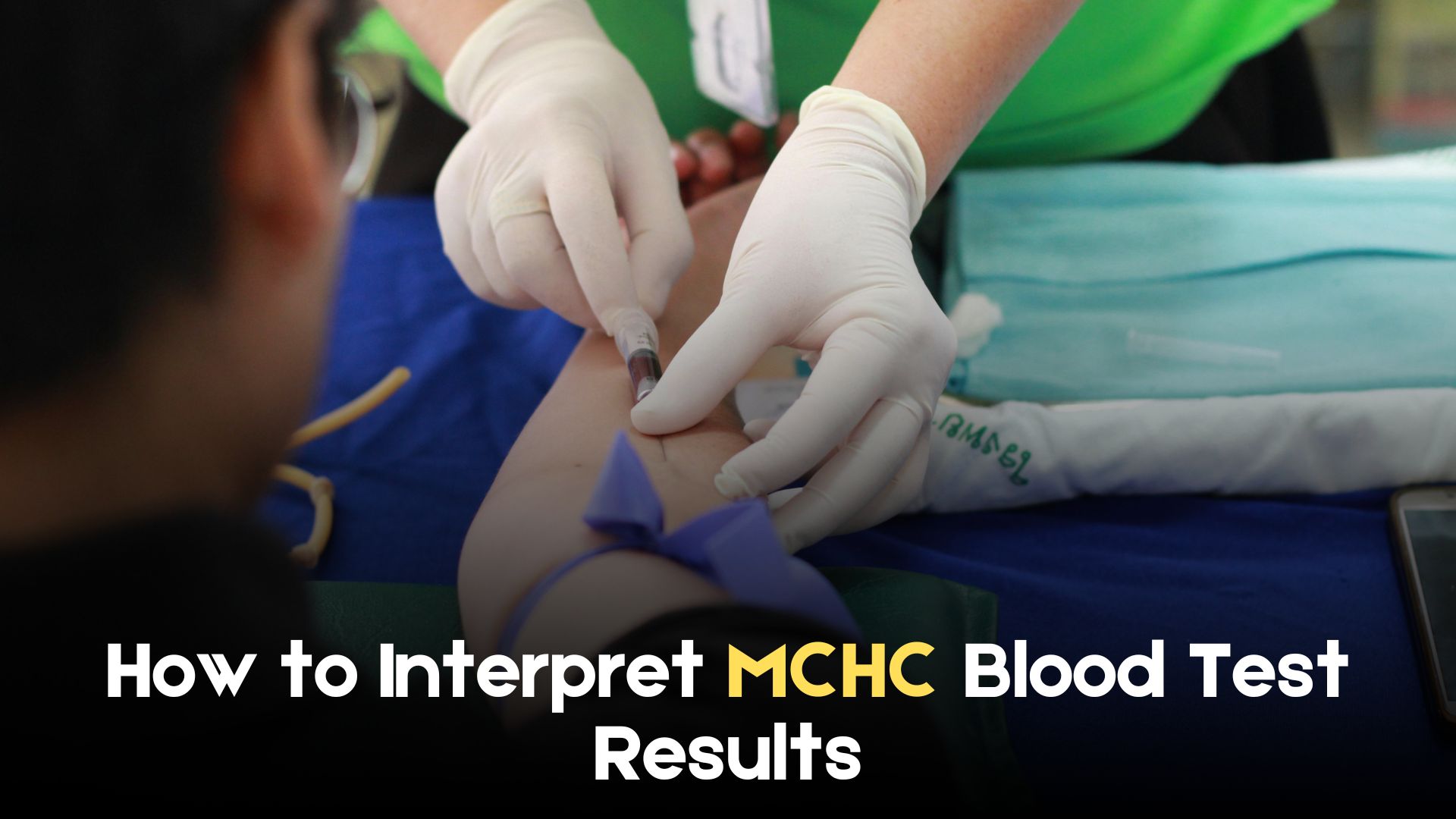The Mean Corpuscular Hemoglobin Concentration (MCHC) is a crucial parameter in a blood test that provides insights into the concentration of hemoglobin in red blood cells. Hemoglobin, a protein found in these cells, is responsible for transporting oxygen throughout the body. Monitoring hemoglobin levels through an MCHC test can help identify potential health conditions. If MCHC levels deviate from the normal range—either too low or too high—it could indicate underlying medical issues.
In particular, MCHC is frequently used in the diagnosis and monitoring of anemia, a condition marked by insufficient healthy red blood cells, leading to fatigue and weakness. In addition to anemia, MCHC results are used to detect and monitor other health issues such as sickle cell disease, high blood sugar (hyperglycemia), and various blood disorders.
Understanding Your MCHC Test Results
An MCHC test is part of a Complete Blood Count (CBC), a routine test that provides detailed information about the components of your blood, including red blood cells, white blood cells, and platelets. Typically, your healthcare provider will order a CBC annually or if they need to investigate specific symptoms or monitor existing conditions. You might also hear the term “full blood count” used interchangeably with CBC.
Once your test results are ready, your MCHC will be included alongside other important blood parameters. The normal range for MCHC generally falls between 32 to 36 grams per deciliter (g/dL) or 320 to 360 grams per liter (g/L), depending on the lab. It’s essential to note that different labs may use slightly different measurement techniques, so it’s important to consult with your healthcare provider to understand what’s considered normal for you.
If your MCHC is low, it’s referred to as hypochromia, meaning your red blood cells contain less hemoglobin than they should. This reduced hemoglobin content limits your body’s ability to transport oxygen to vital organs and tissues. Conversely, if your MCHC is high, this is termed hyperchromia and suggests an unusually high concentration of hemoglobin in your red blood cells. Hyperchromia can increase the risk of complications such as blood clots.
Both low and high MCHC values can arise from various conditions, which we’ll explore in more detail.
Causes of Low MCHC Levels

Low MCHC levels typically point to iron deficiency anemia, the most common form of anemia. Iron is crucial for producing hemoglobin, and insufficient iron intake or absorption can impact the creation of healthy red blood cells, leading to low MCHC levels. Iron deficiency anemia may result from several factors, including:
- Chronic inflammation: Conditions that cause prolonged inflammation can interfere with your body’s ability to utilize iron effectively.
- Kidney disease: The kidneys produce a hormone called erythropoietin that signals the bone marrow to produce red blood cells. If the kidneys are damaged, this hormone production may be impaired.
- Difficulty absorbing iron: This can occur due to digestive disorders, certain genetic conditions, or even participation in endurance sports, which can deplete iron stores more quickly.
In addition to iron deficiency anemia, low MCHC levels can also be caused by thalassemia, a genetic disorder where the body produces insufficient hemoglobin, and pancytopenia, a condition where red blood cells, white blood cells, and platelets all go down at the same time.
Causes of High MCHC Levels
While anemia is often associated with low MCHC levels, certain types of anemia can lead to high MCHC values. For example, hemolytic anemia is a condition where red blood cells are destroyed faster than they can be replaced, which may result in elevated MCHC levels. Causes of hemolytic anemia include:
- Autoimmune disorders are where the body mistakenly attacks its own red blood cells.
- Complications from blood transfusions.
- Infections, which can cause rapid destruction of red blood cells.
- Sickle cell disease is a genetic condition where red blood cells become misshapen and break down prematurely.
Additionally, high MCHC levels may be caused by hereditary spherocytosis, a rare genetic disorder that produces abnormally shaped red blood cells, which are more prone to being destroyed, leading to elevated hemoglobin concentrations.
Expectations for an MCHC Blood Test
An MCHC test is part of a regular CBC. A small amount of blood is taken from a vein, usually in your arm, for the test. However, if your healthcare provider has ordered other blood tests that require fasting, they will provide you with specific instructions.
The whole process of taking blood doesn’t take long. A doctor or nurse will stick a small needle into your arm to get a blood sample. The sample is then put in a vial and sent for analysis. While you might experience a brief sting as the needle is inserted or removed, any discomfort usually subsides quickly. Occasionally, you may experience minor bruising or dizziness after the test.
Related Blood Tests to MCHC
In addition to MCHC, a CBC includes several other important measurements of your red blood cells, known as red blood cell indices. These indices work together to provide a comprehensive picture of your blood health and are particularly useful in diagnosing anemia. They include:
- Mean Corpuscular Volume (MCV): Measures the average size of red blood cells.
- Mean Corpuscular Hemoglobin (MCH): Determines the average amount of hemoglobin in each red blood cell.
- Red Cell Distribution Width (RDW): Assesses variations in the size and volume of red blood cells.
What To Do After Receiving MCHC Test Results
If your MCHC levels are above or below the normal range, your healthcare provider will discuss the possible causes and recommend treatment options. The treatment plan will depend on the underlying condition causing the abnormal MCHC reading. For instance, if anemia is the cause, your provider will work to identify the type of anemia and its root cause.
Treatment options for anemia and other conditions that affect MCHC levels may include:
- Blood transfusions or bone marrow transplants for severe cases.
- Dietary supplements, particularly iron or vitamin B12, boost red blood cell production.
- Medications that address the specific cause of anemia or other blood-related conditions.
Research has shown that low MCHC levels, especially in people hospitalized for acute heart attacks or pulmonary embolism, can predict poorer outcomes.
Can MCHC Results Be Inaccurate?

In some cases, MCHC results might not accurately reflect your true hemoglobin levels. Various factors can temporarily alter hemoglobin levels and, by extension, your MCHC results. These include:
- Recent blood transfusions might temporarily inflate hemoglobin levels.
- Hyperbilirubinemia is a condition marked by elevated bilirubin levels, which can suggest liver disease or certain blood disorders.
- Infections or lipidemia (excess fat in the blood), can interfere with test results.
- Specimen mishandling, although rare, could affect the accuracy of your MCHC readings.
Trending:- Shilajit: Exploring Its Health Benefits




1 Comment